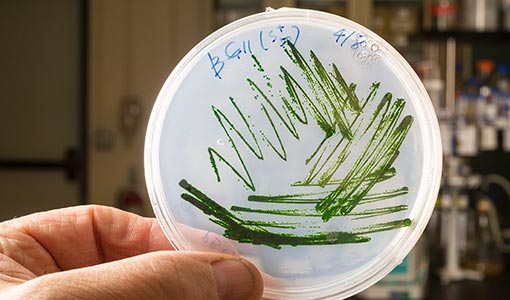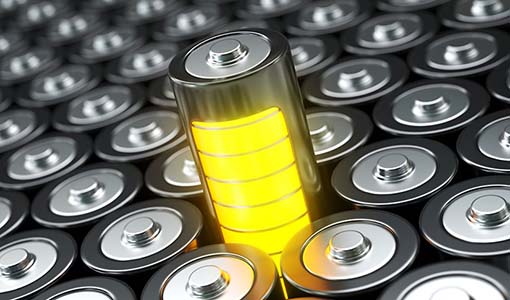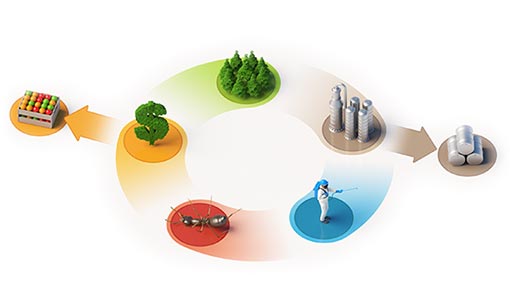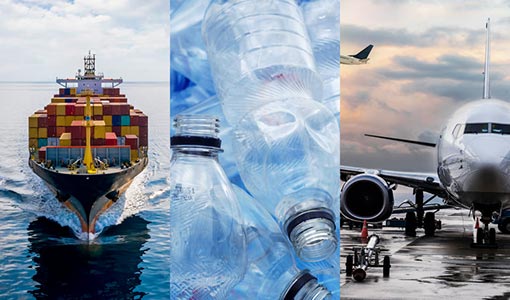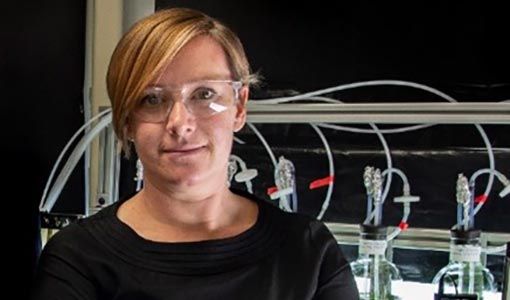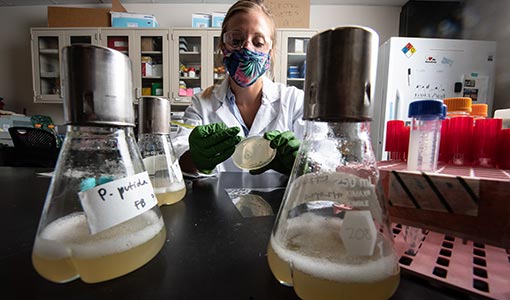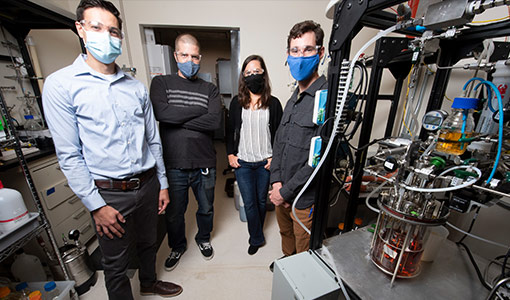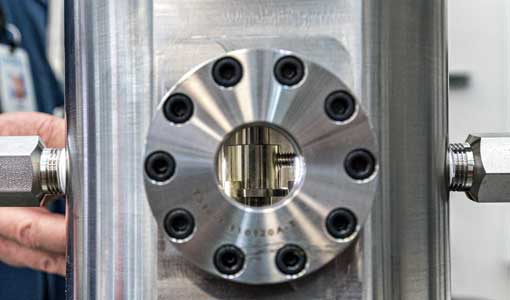Explore our collection of new stories for this topic.
Search or filter for a specific story using the options below.
December 2021
Forget Sci-Fi—This NREL Biotechnology Could Actually Help Colonize Mars
NREL scientists are working on harnessing cyanobacteria to convert growing concentrations of CO₂ in Earth's atmosphere into the same chemicals currently made from petroleum and natural gas—a step toward decarbonizing the chemical industry. With partner Nzyme2HC, they are exploring whether astronauts can use NREL's patented ethylene-emitting cyanobacteria to manufacture building materials and produce oxygen on Mars.
Sharing Data in Virtual Hubs Streamlines Energy Materials Research, Spurs Collaboration
A paper co-authored by NREL researchers and others studies the success of the Energy Materials Network Data Hub—a secure, customizable scientific data sharing platform.
Machine Learning Method Could Speed the Search for New Battery Materials
To discover materials for better batteries, researchers must wade through a vast field of candidates. New research demonstrates a machine learning technique that could more quickly surface ones with the most desirable properties.
October 2021
Three Bio-Based Innovations Edge Closer to Market With Private-Public Funding
A more sustainable farming sector, lower industrial emissions, more efficient biochemical production—NREL scientists and industry partners expect sizable benefits from three new projects to commercialize bioinsecticides, enzymatic carbon dioxide (CO2) utilization, and cell-free biocatalysis.
NREL Caps Off a Year of Accomplishments With National Bioenergy Day
On October 20, NREL will join organizations and individuals nationwide in celebrating the ninth annual Bioenergy Day. The day commemorates advancements in the use of biomass to produce energy from sustainable resources such as farm, forestry, and other plant waste.
With NREL's Feedstock Research, Algae and Garbage Could Be Ingredients for Zero-Emissions Fuels of the Future
In theory, over 1 billion tons of biomass could be sustainably collected and processed into biofuels by 2030 in the United States, according to U.S. Department of Energy analysis.
Researchers Engineer Microorganisms To Tackle PET Plastic Pollution
To help combat the plastic waste problem, NREL and its collaborators have developed a method to upcycle polyethylene terephthalate (PET) into performance-advantaged nylon, a precursor to other valuable products such as waterproof clothing, stick-free cookware coatings, and heat-resistant machine parts.
NREL Process for Renewable Butyric Acid Good for Environment, Cheaper Biofuels
Scientists at NREL developed a fully integrated process to produce a promising precursor for diesel and jet fuel from lignocellulosic biomass, and for less expense than the selling price of the same material from petroleum.
September 2021
Q&A With Bob Allen: Cooking Up the Right Ingredients for a Circular Economy
This is the first in series of articles profiling NREL researchers whose work is helping build a circular economy to extend the lifespan of materials, components, and products, while reducing waste, conserving resources, and boosting efficiency. NREL Senior Research Fellow Bob Allen shared his thoughts on how innovations in upcycling sustainable polymers and composites can contribute to the circular economy.
August 2021
Breakthrough Methods Help Integrate Renewable Hydrogen With Waste Carbon Dioxide To Produce Clean Fuels, Chemicals, and More
Wind, solar, and battery storage appear to be a winning combination for clean electricity systems, but to make the leap to a sustainable energy system, another ingredient is necessary—low-carbon fuels.
Share
Last Updated May 5, 2025

